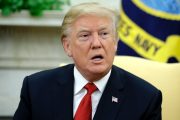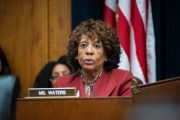
The Biden administration is making moves to bring regulation to artificial intelligence. Will such policies provide protection to the public, or be abused in order to give the government and elites greater control over the people?
According to an Axios report, the White House has scheduled an event related to “safe, secure and trustworthy artificial intelligence” on Monday, when it is expected that an executive order targeting the AI industry will be announced.
And per a draft of the order obtained by Politico, the order will be sweeping in scope, involving various federal agencies to ostensibly protect workers and monitor artificial intelligence risks. Yet the details suggest that the executive order would be just as much about advancing key Democratic agenda items.
Specifically, the order would streamline “high-skilled” immigration while creating a host of government offices and task forces seeking to make AI present everywhere, from education to housing to healthcare and beyond.
The executive order also paves the way for AI technology to be controlled through data-privacy and cybersecurity standards at federal agencies, as well as through enforced fairness and protections against discrimination.
Politico notes that the order will not have the force of law, but rather will focus on giving federal agencies influence in the market through their enforcement instruments and buying power. As one example, Biden’s order calls on the Federal Trade Commission to take action on anti-competitive behavior and consumer harms in AI.
As the outlet reports:
The White House will issue sprawling directives to over a dozen agencies targeting their handling of artificial intelligence systems, according to the 111-page draft. Most will have between 90 to 240 days to fulfill the requirements of the executive order, in the lead-up to next year’s presidential election. The order will also appoint a White House AI Council to coordinate the federal government’s AI activities, chaired by the White House Deputy Chief of Staff for Policy and staffed with representatives from every major agency.
It builds on a “Bill of Rights” issued in late 2022 by the Biden White House, which addressed many of the concerns raised by civil society groups but adds a significant push toward exploring AI’s capabilities as well, including the launch of the pilot public research program known as the National AI Research Resource, or NAIRR.
A notable aspect of the executive order is that it will empower the federal government to monitor private-sector development of AI systems by a mandate requiring companies to provide the government with reports detailing how they train and test “dual-use foundation models,” which include the most powerful artificial intelligence systems.
In the sphere of cybersecurity, Biden’s executive order requires firms involved in creating AI models to inform the Commerce Department how they intend to protect their technology from espionage and digital sabotage. Big cloud providers such as Amazon and Microsoft would have to let the government know each time foreigners rent server space for the purpose of training large AI models. This is all for the declared aim of keeping AI models from becoming susceptible to enemy foreign powers.
Furthermore, the executive order would give federal agencies three months to determine the risks of AI usage within their respective sectors, and then six months to iron out guidelines for companies in those sectors to implement the White House’s new AI Risk Management Framework.
For instance, the Treasury Department would be given 150 days to submit a public report regarding ways the banking sector can effectively deal with AI-related cyber risks.
In the realm of health, Politico reports, the order “calls on the Department of Health and Human Services to create a task force to develop a strategic plan within a year on the responsible use of AI, including with respect to generative AI, according to the draft, which was confirmed by a person familiar with the draft.”
HHS would also be required to formulate a strategy for deciding whether AI technology is of sufficient quality in key areas, such as drug and device safety. HHS would also be tasked with working with agencies to find how AI could potentially discriminate against patients — and then use this information to develop a safety program for identifying errors and tracking harmful incidents. Grants will be made available to advance AI technology in healthcare.
The draft of the executive order has language calling on every agency to police business competition to prevent the largest firms, such as Google, Microsoft, and Amazon, from consolidating control of the market. This would be achieved by encouraging the FTC to take an aggressive stance on enforcing competition.
Politico also notes the measures the executive order enacts to make it easier for foreign nationals in AI to get green cards or otherwise work in the United States:
The draft order directs the State Department and the Department of Homeland Security to streamline visa applications and appointments for immigrants who plan to work on AI or other critical technologies. It also urges the State Department to create new rules that make it easier for foreign nationals on temporary educational or exchange programs to work on AI and other emerging tech without “unnecessary interruption.”
The draft order also directs several agencies — including the State and Commerce departments, as well as the White House Office of Science and Technology Policy — to create an overseas campaign to promote the U.S. as an attractive destination for foreigners with science or technology expertise to study, research or work on AI and other critical technologies. And it requires the Department of Labor to solicit information from the private sector on where immigrants with advanced skills in science and technology are most needed.
The White House claims these policies will protect and benefit Americans. That is clearly not the case. Is it merely a ploy to introduce more socialism?




